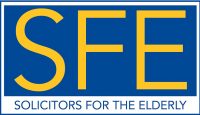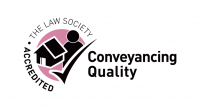
Keren Morgan
Partner
Home Ownership In Estate Planning
Types of Home Ownership
| Joint Tenants | Tenants in Common |
| If you hold the property as joint tenants, both of you will own the whole of the property. You will not each have a quantified share in the property and will not be able to leave a share of the property in your will.
When one of the owners die, their share automatically goes to the surviving owner, irrespective of whether there is a will or not. So, if you died your partner would own all of your house and would be free to leave it to whomsoever they please. |
If you hold the property as tenants in common, each of you each own a distinct share which you can leave to anyone in your will. So, if you own your property as joint tenants but wish to leave your share of the property to someone other than your spouse you will need to sever the joint tenancy and become tenants in common. You also need to have a will drawn up leaving your share of the property to your chosen beneficiary.
If you do decide to own your property as tenants in common, as with most couples you may consider giving your partner what is known as a “life interest” in the house so they can continue to live in the property after your death until their death. To do this you set up a trust in your will for the lifetime of the survivor.
On the death of one of the owners, the share owned by that person does not automatically pass to the other owner, it passes according to the deceased person’s will but subject to any lifetime interest the deceased may have granted to the survivor. |
Inheritance Tax
If you divide your ownership of the property into tenants-in-common, then you avoid swelling the survivor’s estate by the value of your share in the property. However, the allowances that a surviving spouse can apply to their estate can mean it is not necessary.
There may be some or all of the basic unused exemption from the estate of the first of the owners to die that can be allocated to the survivor. At today’s figure the survivor can leave up to £650,000 free of IHT.
Additionally, there is residence nil rate band which can be applied against the main residence and again that can be doubled up on the survivors. This means at today’s figures you can leave up to £900,000 free of inheritance tax. The residence nil rate band is set to increase over the coming years so that by the year 2021 you will be able to leave £1,000,000 free of IHT. Anything over and above that will be taxed at 40%.
However, you also need to consider the value of your estate and any application for a grant of probate. Probate is not required for jointly owned assets, which includes a property owned as joint tenants. If the survivor is likely to want to sell the property and it is owned as tenants-in-common then probate would be required. Probate fees are set to increase in April of this year. Currently the fee for a grant of probate is £155 but in April for an estate worth £1,000,000.00 the fee would be £4,000. So there is something to be said for owning as joint tenants.
Care Fees
Couples may consider changing the way that they own their property because they are concerned about their liability for care fees. It is natural to want to preserve your wealth for your children and in order to do this many seek to ring fence their assets by owning their property as tenants in common. Owning as tenants in common means that on the death of the first of the joint owner, only the half share owned by the survivor will be taken into account for the purposes of any means test assessment should that survivor need residential care. The problem is however that any assets that have been converted so be disregarded from means testing, the deliberate deprivation rules will apply. The rules relating to deprivation of assets give the Local Authority to claw back the asset if they believe that there has been a deliberate deprivation of assets.
The purpose of disposing of the asset is crucial, there may be more than one reason for doing so but if the avoidance of care fees is a “significant” reason for your tenancy in common the risk is high that the Local Authority will assert a deliberate deprivation of assets situation. Secondly, it is important that any steps taken to sever a joint tenancy are undertaken at a time when the survivor in good health and there is no contemplation of a need to residential care. It is important to remember that the Local Authority has the right to look at past records and it can go back a long time, it is also entitled to look at legally privileged documents.
Neale Turk Rochfort’s property and private client departments can both advise on joint ownership of property and it should be a consideration if you see one of our team about making your will.






